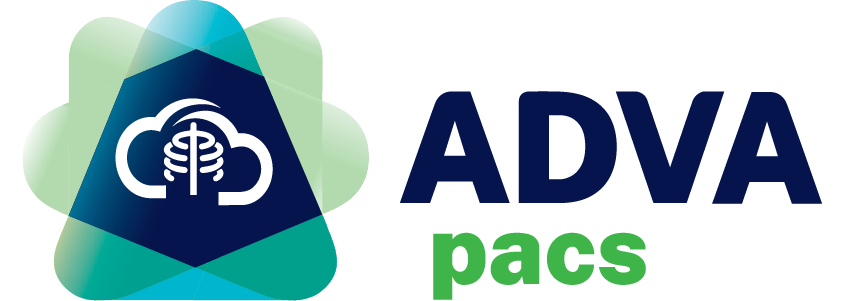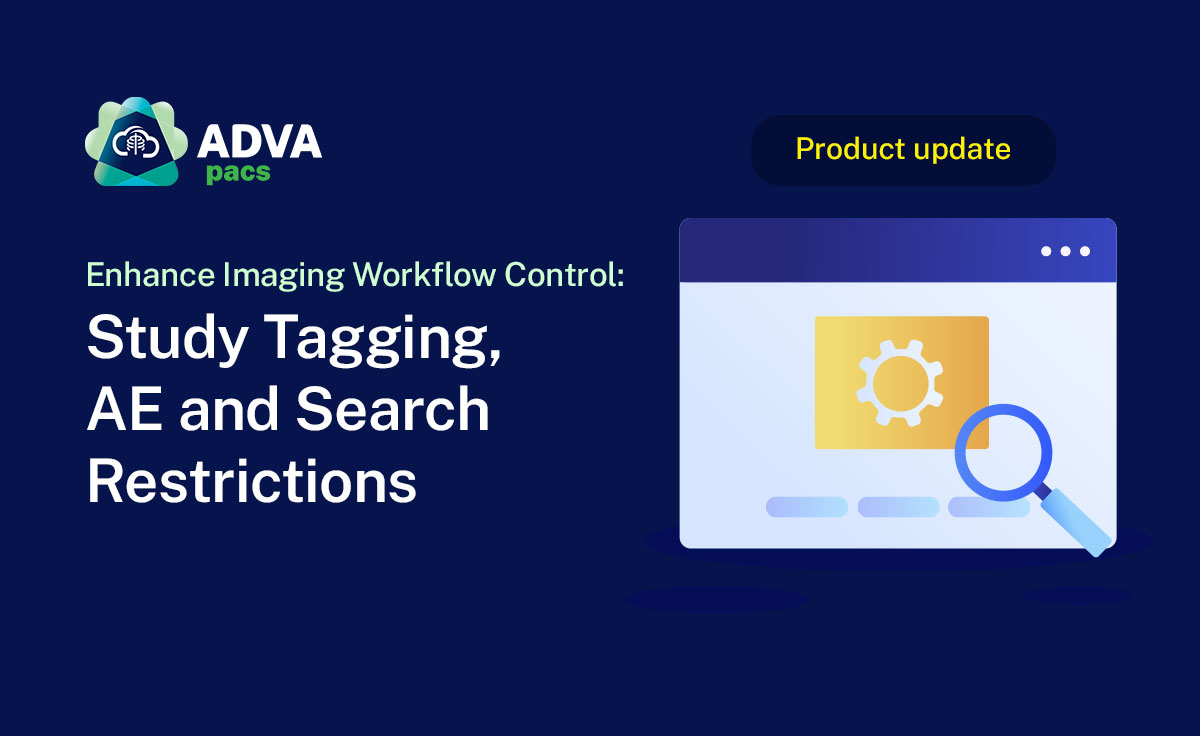At AdvaPACS, we remain committed to providing healthcare professionals with innovative tools that streamline workflows, enhance data security, and ultimately improve patient care. Our latest feature release delivers a suite of powerful functionalities designed to optimise the way medical imaging data is organised, accessed, and managed.
1. Study Tagging
At the heart of this update lies the innovative Study Tagging feature. Users can now categorise studies using customisable key-value pairs, offering a personalised and efficient organisation system.
By assigning specific tags, healthcare professionals can quickly identify and retrieve specific studies, saving valuable time and effort. This enhanced organisation fosters collaboration and communication, as colleagues can easily share and discuss particular studies.
Furthermore, resources can be allocated more efficiently with a clear understanding of each study’s specific needs and priorities.
2. Automated Tagging with Study Tagging Rules
Building upon Study Tagging, we introduce Study Tagging Rules, a powerful capability that automates the tagging process.
By defining conditions based on specific criteria, such as study type, body part, or patient demographics, users can automate repetitive tasks and free up valuable time for other pressing matters.
This automation increases productivity and ensures consistent and accurate study categorisation, minimising the risk of human error and improving data quality.
Additionally, Study Tagging Rules enable healthcare organisations to define and enforce specific tagging practises, enhancing compliance with data governance policies.
3. Enhanced Data Security with AE Restrictions:
Taking data security to the next level, we introduce AE Restrictions, offering administrators granular control over user access to specific devices for Query/Retrieve or Move Destination functionalities.
By limiting access to authorised devices only, this feature significantly reduces the risk of unauthorised access and data breaches, safeguarding sensitive patient information.
Furthermore, administrators can define specific access permissions for different users and groups, ensuring accountability and compliance with privacy regulations.
4. Enhanced Data Privacy and Search Efficiency with Search Restrictions
We further empowers healthcare professionals with advanced Search Restrictions. Administrators can now define specific search parameters for studies, patients, and documents, ensuring that search results are accurate and relevant.
Search Restrictions significantly reduce the risk of accidental or unauthorised exposure of sensitive patient information (PII). This controlled approach enhances data privacy and promotes search efficiency by preventing the retrieval of irrelevant information.
Additionally, administrators can disable wildcard searches, ensuring precise and targeted search results that minimise potential PII disclosure.
This feature allows healthcare organisations to strike a crucial balance between providing access to critical data for legitimate purposes while safeguarding patient privacy and complying with data protection regulations.
Empowering Healthcare Professionals for Improved Patient Care
These new features collectively empower healthcare professionals to focus more on what matters most – patient care.
By streamlining workflows, automating repetitive tasks, and ensuring efficient access to critical data, AdvaPACS enables healthcare professionals to dedicate more time to providing quality care and making informed decisions based on accurate and reliable information.
Ultimately, these innovations improve patient care outcomes and enhance healthcare delivery.




